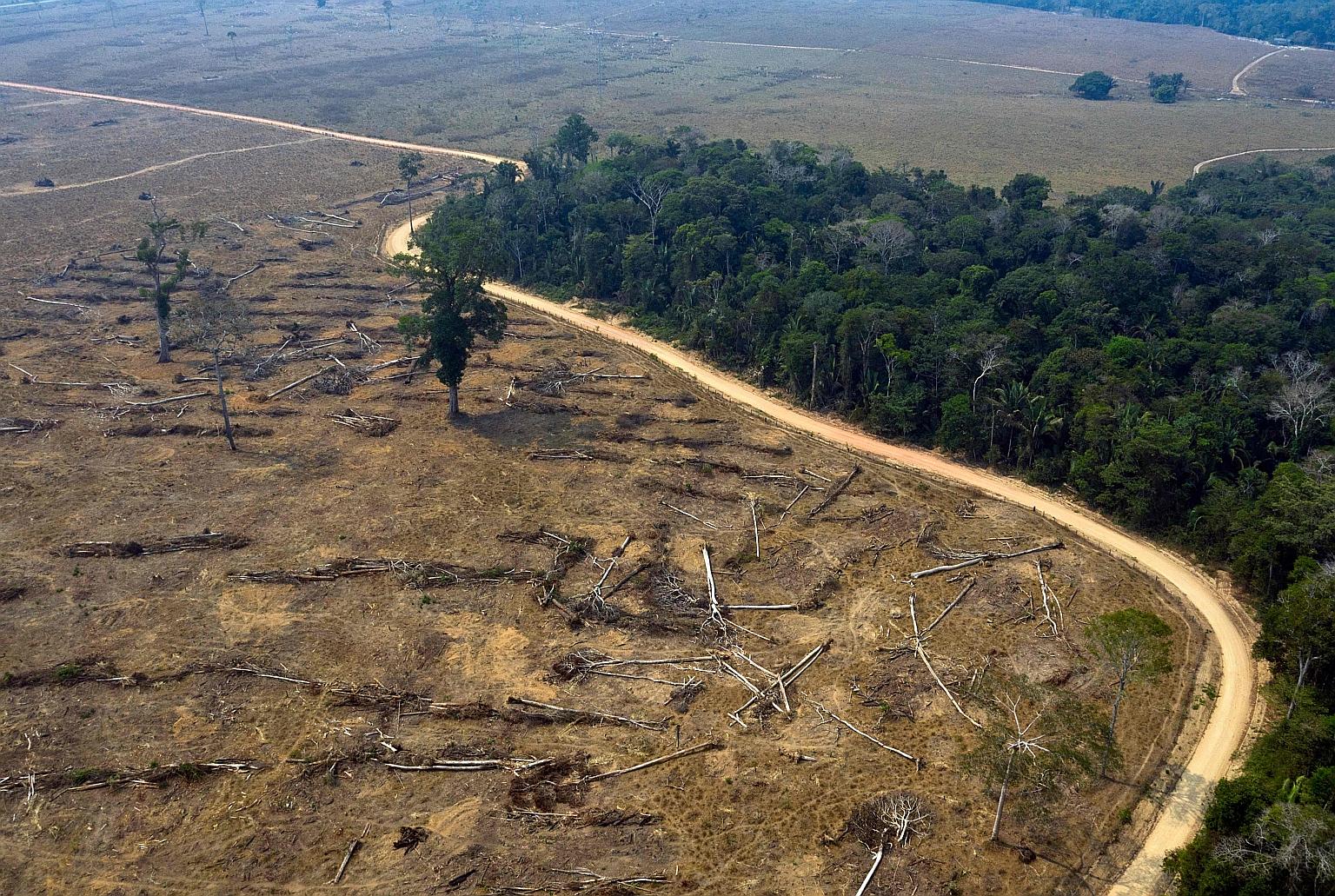Call to tackle climate crisis and biodiversity loss together
UN panel scientists urge govts to use win-win strategies such as encouraging sustainable agriculture practices
Sign up now: Get ST's newsletters delivered to your inbox

An August 2019 photo showing burnt areas of the Amazon rainforest in Brazil. A 2018 paper said the Amazon generates about half of its own rainfall by recycling moisture through evaporation and transpiration. But deforestation could cause the cycle to degrade to the point of being unable to support rainforest ecosystems.
PHOTO: AGENCE FRANCE-PRESSE
The climate crisis and the extinction plague sweeping the natural world have been dealt with as separate issues for decades.
But in a new report published on Thursday, scientists are calling on governments to tackle the climate and biodiversity crises together.
This can be done where possible through the implementation of strategies that are win-win for both the global climate and local biodiversity, instead of solutions that may benefit one at the expense of the other, the report said.
Reforestation projects done in large areas with only a single tree species grown for fuel (such as oil palm), for instance, could affect the abundance of wildlife species at a site, since different animals require different plants for food.
Exotic monoculture species could also become invasive, outcompeting native flora that animals there rely upon.
Instead, more sustainable agricultural practices should be encouraged, say the authors of the new report. They include measures such as planting a diversity of crops instead of just one.
The report was delivered by 50 scientists from the United Nations' climate science and biodiversity panels after a four-day virtual workshop on how to slow down climate change and biodiversity loss.
The workshop and resulting report marks the first collaboration between the Intergovernmental Panel on Climate Change and the Intergovernmental Science-Policy Platform on Biodiversity and Ecosystem Services (IPBES).
At the report's launch, the scientists said both the climate and biodiversity problems are driven by mankind, and are mutually reinforcing.
"Human-caused climate change is increasingly threatening nature and its contributions to people... The warmer the world gets, the less food, drinking water and other key contributions nature can make to our lives in many regions" said Professor Hans-Otto Portner, co-chair of the scientific steering committee that led the workshop.
The Amazon rainforest, valued for its rich biodiversity, has a profound impact on rainfall.
A 2018 paper in the journal Science Advances noted that the Amazon generates about half of its own rainfall by recycling moisture five to six times through evaporation and transpiration as air moves from the Atlantic Ocean across the forest basin to the west. But deforestation could cause the cycle to degrade to the point of being unable to support rainforest ecosystems.
"Changes in biodiversity, in turn, affect climate, especially through impacts on nitrogen, carbon and water cycles," Prof Portner said.
Stanford University researchers had in 2017 found that places where animals are most diverse correlate with places that have the most carbon locked up in the soil.
Animals contribute to the carbon cycle when they eat, breathe and decompose. This is also the case underwater.
The report highlighted the importance of halting the loss and degradation of carbon-and species-rich ecosystems on land and in the ocean. But the researchers warned that banking on these nature-based solutions is just one part of the equation - there needs to be rapid cuts to fossil fuel use too.
"Land and ocean are already doing a lot - absorbing almost 50 per cent of carbon dioxide from human emissions - but nature cannot do everything," said IPBES chair Ana Maria Hernandez Salgar.
Nature-based solutions have been increasingly discussed in Singapore, with the country announcing last month that it will set up Climate Impact X, a global exchange and marketplace where carbon credits can be bought and sold.
A source of such credits is projects in the region that restore natural habitats or prevent them from being cut down, so they can be left to do what they do best: suck in planet-warming carbon dioxide.
But the report cautioned that such carbon offset solutions are most effective when application is "subject to strict conditions and exclusions" and they are not used to delay mitigation actions in other sectors.
National University of Singapore (NUS) conservation scientist Koh Lian Pin said a biologically diverse forest ensures that the ecosystem continues to provide mankind with services such as carbon storage and sequestration - critical for climate change mitigation.
"In this way, policies to address biodiversity loss and climate change are inherently aligned and synergistic," said Professor Koh, who helms the new Centre for Nature-based Climate Solutions at NUS.
Prof Portner said that resolving some of the "strong and apparently unavoidable trade-offs" between climate and biodiversity will entail a profound collective shift of individual and shared values concerning nature.


